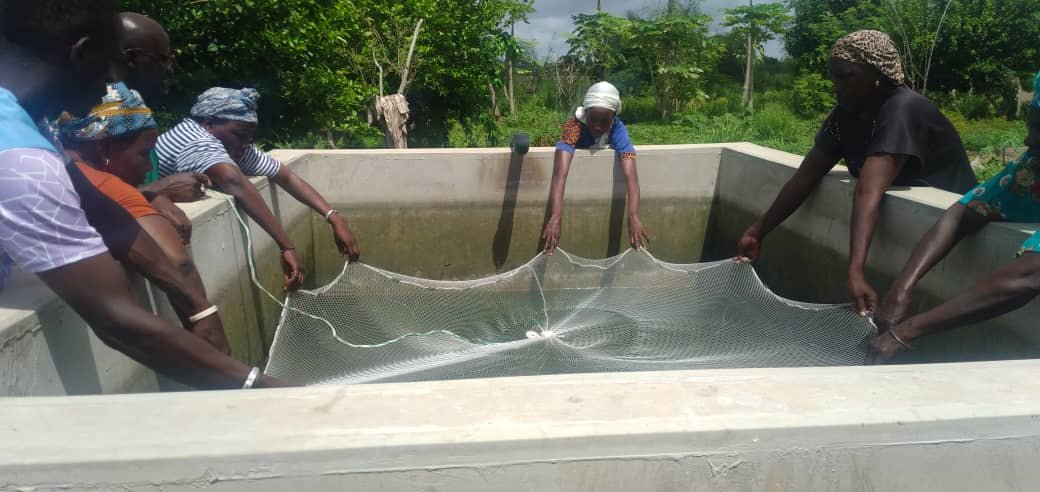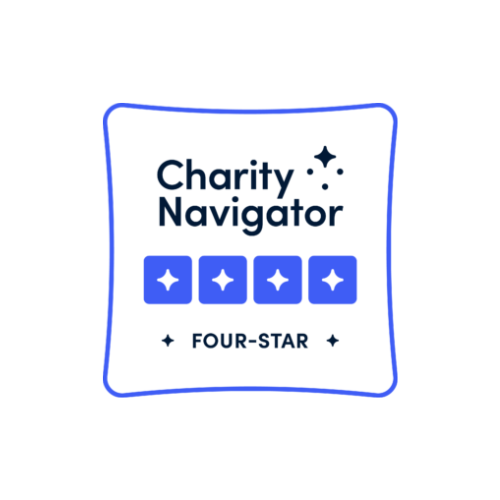A basket full of fish after a harvest complimented by a hearty lettuce harvest, grown using fish water.
It is our absolute pleasure to report that our trial fish farming project is thriving! Earlier this year we reported on the beginnings of this process, but to be honest we really didn’t know how it would turn out. There were challenges but overall, our team has done a tremendous job and we couldn’t be prouder of them and the women in the gardens for picking up such a unique and difficult new skill!
During a hands-on training, participants in our aquaculture project learn how to assess fish for health and growth.
On a recent visit we got to witness the first fish harvest and the results are incredible. There is nothing quite like seeing buckets of fish (over 250lbs) coming out of our gardens in the middle of the desert. It was a wonderful scene of excitement, singing, dancing, joking, everything you would expect at the culmination of a challenging but successful project. Here’s some of what the women had to say that day:
“We used to work hard before but now with the fish program, we really see ourselves succeeding in the garden.”
“Look at the eggplants! We noticed for three years we haven’t had eggplants, but now we do because of the fish water.”
“There is a start, but there is no end to our happiness.”
Garden participants introducing the first new fingerlings produced in our own fish tanks.
It is hard to describe the importance of fish in Senegal and how meaningful it is for the women to be able to provide fresh, healthy fish for their families. This is of course the first and most noticeable benefit but the women also remarked on how watering with the fishpond water is improving vegetable production across the whole garden as well. Indeed, our aquaculture gardens saw an average 42% increase in individual profits this year compared to the same 6-month period last year! WOW!
During a hands-on training, participants in our aquaculture project learn how to harvest fish from the basins.
All four gardens that participated in this pilot program are continuing to raise fish and now that the tilapia are successfully reproducing in the basins, we are very close to having self-replicating, sustainable production that can continue for years to come.










